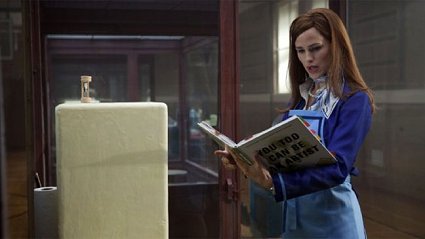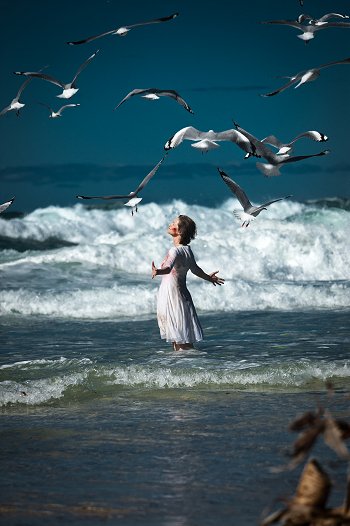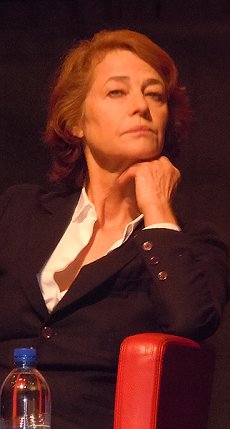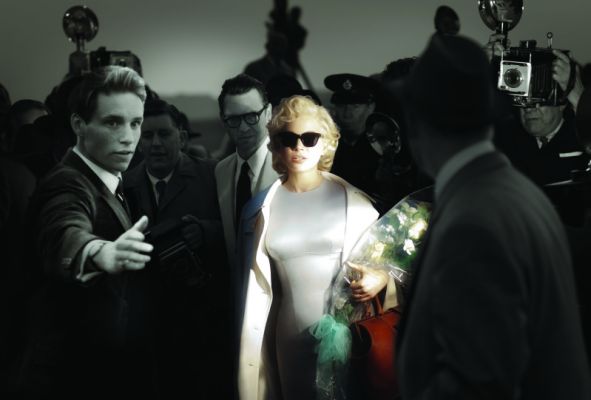Another look at some of the most interesting films we were able to see at the 6th edition of the International Rome Film Festival.
Terence Davies' adaptation of Terence Rattigan's 1952 play The Deep Blue Sea was presented as part of the Focus on British cinema. The director is known for the elegance of his images as well as the restrained passion of the stories he chooses to film, and The Deep Blue Sea is another example of the British filmmaker's languid and impossibly austere approach to romance. Hester (Rachel Weisz) is a young woman trapped in a sad marriage to an older man (Simon Russell Beale), who truly and deeply loves her. When she meets the charming Freddie (Tom Hiddleston), a now unemployed WWII pilot, she leaves her whole privileged life behind to follow a love that may be only superficial.
Davies himself presented the movie as a simple story of love unrequited, but the film is probably much more subtle than what the director wanted to share with his audience. The Deep Blue Sea is, indeed, a story of shattered feelings, with three characters filled with love for the wrong person. But the reason for such tragic romances goes beyond fickle hearts and is deeply rooted in a particular time and place, London in the early 1950s.
It's a time and a place when the memory of war is more alive than ever. In fact, that memory is so essential that it even takes hold of the most fascinating and intoxicating scene in the movie, brilliantly placed in a moment when our tragic heroine almost goes for the Anna Karenina solution. She is interrupted by an overwhelming flashback, a gorgeously shot long take that carries us back in time to a city on its knees, with people hiding from bombs in the subway tunnels and sharing, lower and upper classes alike, a moment of clear, honest humanity, underlined by a beautifully sad Irish folk song.
Through that memory the sense of the story unfolding before our eyes changes, and suddenly that barren landscape of emotions pervading the characters acquires a new meaning, an undercurrent of dissatisfaction, of people whose lives seem to have no purpose after the great struggle of war. People who, indeed, don't know how to love anymore because war has taken its toll. If during the war it seemed easy to share a bond with others, in the broken aftermath there is very little left besides the metaphorical ruins that close the movie, actual ruins and ruins of the heart. And ruins where we see children play, as if to say that, while it could be too late for those who have experienced the tragedy and are hopelessly stuck between the devil and the deep blue sea, there is still hope left for the pure, and love and joy to share.

Butter is a small American comedy of the Little Miss Sunshine kind, and it was a little surprise that generated a few sincere laughs and awws. It really is an American movie through and through, from the heartwarming underdog story to its main schtick, one that is as redneck as they come: butter sculptures. The movie knows how to play with cliches (Jennifer Garner's Republican Jackie Kennedy wannabe is a riot), and there's a nice undercurrent of satire even when all that butter is mixed with a little too much sugar. A harmless movie, funny, cute, and its biggest merit may be bringing to the big screen the talents of Modern Family's Ty Burrell and The Office's Phyllis Smith.

Fred Schepisi's adaptation of Patick White's The Eye of the Storm is a very classic, academic film that doesn't offer anything new from a cinematic point of view, but manages to be entertaining thanks to some wonderful performances (Charlotte Rampling above all) and some thought-provoking moments derived from the source material. Schepisi is good at depicting the conflict between a horrendous mother and her two estranged children, as well as the contrast between an "upstairs" world of the privileged few who long to find some real emotion under the superficiality of a wealthy life, and a “downstairs” world of servants who long for their bit of material happiness and security.

Exclusive ICS picture of Charlotte Rampling at The Eye of the Storm press conference in Rome

My Week with Marilyn follows the brief friendship, and possibly love, between the most famous actress in history and a young man enamored with the world of movies.
In 1956 Marilyn Monroe had just married dramatist Arthur Miller. She was 30, the greatest star in the world, and struggling to become a great actress as well. When she was offered the role of Elsie Marina in Laurence Olivier's adaptation of The Sleeping Prince (a role originated by Olivier's wife Vivien Leigh on stage), Marilyn thought that being directed and starring opposite a screen and stage legend she admired so much would be a wonderful learning experience for her. It wasn't.
Between Marilyn's bursts of extreme sadness and extreme joy and Olivier's short temper, the filming of what would be retitled The Prince and the Showgirl was hellish for most people involved. But Marilyn director Simon Curtis – who approached the material as somebody who wasn't the biggest fan of Marilyn – decided to tell this legendary Hollywood story in a different way, through the eyes of assistant director Colin Clark (a wide-eyed Eddie Redmayne), 23 at the time and Marilyn's only friend on the set, as he later disclosed in his books The Prince, the Showgirl and Me and My Week with Marilyn.
Curtis' adaptation of Clark's memoirs is a classic movie about classic Hollywood. It never tries to be much more than a straightforward retelling of the story from a cinematic point of view, but the screenplay and the actors manage to make up for the director's blandness with a story that is always entertaining, and performances that are truly captivating and deliver that lost feeling of golden Hollywood grandeur.
Kenneth Branagh's Olivier is classy and intimidating when he suddenly starts reciting Shakespeare, but the star of the movie is obviously Michelle Williams in a role that never lets the audience turn their eyes away. Just like Marilyn, Williams fills the screen and charms the audience, her every gesture and expression a homage to the human and real side of the late diva. Maybe her voice is not the husky low whisper that Marilyn required, but Marilyn's insecurities, her fragility, her intoxicating beauty are all there. This is a Marilyn at her weakest, as Simon Curtis pointed out during the press conference. She was trapped in a joyless marriage that did not meet her expectations, and she was being manipulated by her acting coach and her manager. If Williams sometimes doesn't reach Marilyn's charisma, that's actually a plus, because the Marilyn we're supposed to see is mostly the sad woman always on the brink of self-destruction rather than the glamorous diva. Every time she's happy, she's truly, deeply happy, and every time she's sad, she falls into a bottomless pit of depression. It's a mature, complete performance and the one everyone's talking about at the festival.
